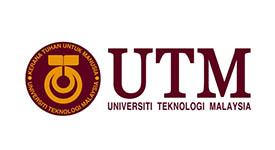
Start Chat with a Counsellor

| Study Mode | FULL TIME,BY COURSE | ||||
| Level | POST-GRADUATE | ||||
| Duration | 2 years | ||||
| Intake |
|
The program aims to integrate and generate an advanced and in-depth knowledge in specific field of Forensic Engineering in professional practices. This program combines four main areas which relates to the failure of structural and construction in civil, electrical, mechanical and chemical engineering. The purpose of a forensic engineering investigation is to locate cause or causes of failure with a view to improve performance or life of a component, or to assist a court in determining the facts of an accident. Forensic engineers often are used in product liability cases, a type of civil court case, and, occasionally, criminal cases, to investigate and testify about the source of a product’s, design’s or object’s failure.
Credit Requirements
A student must complete 46 credit hours for graduation.

Compulsory University’s General Elective Courses
(Total: 6 credits)

Core Courses:
Students are required to take all core courses (Total: 18 Credits)

MKAR 1013 – Principles of Forensic Engineering
This course is designed for students to understand the activities of forensic experts in the engineering professions. It cover aspects of forensic activity that are common to all disciplines such as clients, and scope and purpose of investigation, techniques, procedures and tools used in investigation and analysis. Interface with forensic specialists from other discipline. Impact of forensic activity on improved practices, products, or planning to reduce the frequency and severity of failures.
MKAR 1023 – Laws in Forensic Engineering
This course introduces students to laws related to the practices of professional in engineering. This course introduces students to laws related to the practices of professional in engineering. The course will emphasize on three main liabilities; tort, contract, statutory liabilities. The role of professional as expert witness will be introduced in law of evidence so as the students will be familiar to the role of expert witness and the procedures involved during experts at trial. The focus will be on building a credible and believable testimony. At the end of the course, the students are expected to understand the legal setting in the practise and be able to analyse and apply critical reasoning and make informed judgement in addressing legal issues in engineering practice and to stand as credible expert witness.
MKAR 1033 – Safety Engineering
This subject fundamental concepts of safety engineering, and understanding safety of equipments commonly used in engineering installation and maintenance, safety of chemicals used in engineering processes, and implementation of safety engineering programs in engineering installations and plants.
MKAR 1043 – Risk Analysis
Risk is a probability. It is also known as an application of qualitative and quantitative techniques to reduce uncertainty of the outcomes and associated costs, liabilities, or losses. This course is designed for students to understand the risk analysis in the engineering professions. It covers risk definition, detailing of risk analysis, theory of basic probability, modeling of engineering problems, reliability methods, the risk assessment and the acceptance of the risk itself towards individual and society. Upon completion of the course, students are expected to be able to understand the possibilities of risks to occur in the engineering field and how to overcome the risk. Risk analysis is essential to develop the life-long learning of generic attribute because risk is synonime in the engineering field and eventually risk can be planned and minimized by the optimum understanding of the course.
MKAR 1053 – Investigation of Structural Problems and Failures
This course is designed to expose the students on how to conduct forensic engineering investigation according to recommended scientific methods and engineering practice. It covers the different types of problems and failures in engineering infrastructures, the process of investigation as well as the tools and techniques commonly used in forensic engineering. The course also includes the use of various NDT techniques in forensic engineering investigation, how the results are interpreted and how failure hypothesis is developed to determine probable cause or causes of failure. The students will also learn how to present forensic engineering investigation results and gain a basic knowledge on legal aspects of forensic engineering.
MKAE 1043 – Advanced Construction Materials
This course is designed for students to gain knowledge on advanced construction materials in civil engineering. It will emphasize on advanced materials on concrete, masonry, highway, and geotechnic. The topics covered include the use of waste materials and industrial by-products, natural fibres, and polymer in concrete; production of high performance and durable concrete, development of modern masonry in construction, properties and strength of masonry work, design and construction of flexible and rigid pavement, bituminous surfacing, geosynthetics materials. At the end of the course students should be able to describe, identify, and discuss the properties and behaviour of different types of civil engineering materials together with the selection and applications of the materials in practice
Elective Courses:
Choose four (4) courses from this elective courses (Total: 12 credits)
Group A : Civil Engineering

Group B : Mechanical Engineering

Group C : Electrical Engineering

Group D : Chemical Engineering

Masters Project MKAR 1514 and MKAR 1526
(Total: 10 credits)
The Master Project is an independent project or research type work on topics that are relevant to forensic engineering in the area of civil, electrical, mechanical or chemical. The project topics will have to be approved by the program panel and will be supervised by a member of the academic staff. The Master Project can be developed based on student’s own experience in industry.

Candidates should hold a good bachelor degree in science and engineering from Universiti Teknologi Malaysia or equivalent. A lower grade degree with working experience will also be considered for admission. Holders of degrees other than civil engineering may also apply but pre-requisites knowledge/course may be imposed.
Copyrights © 2024-25 Education Malaysia. All rights reserved.
